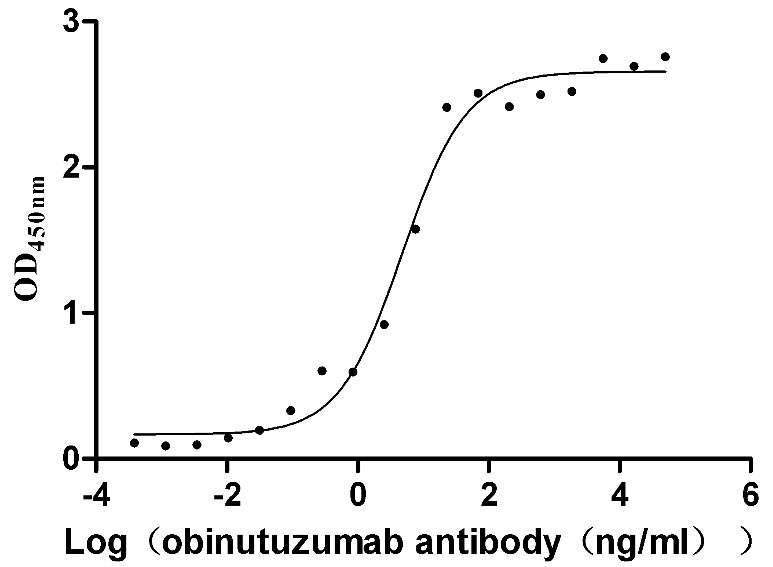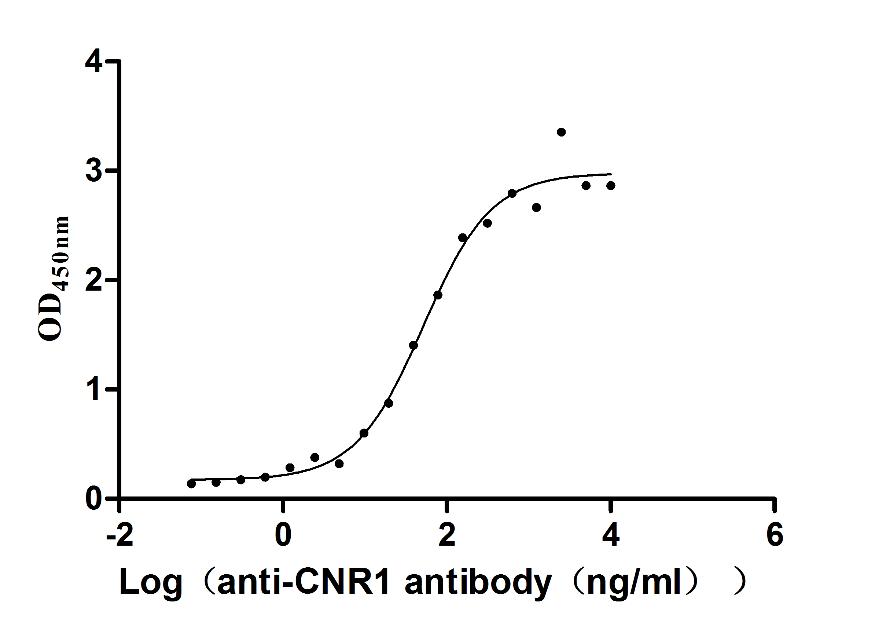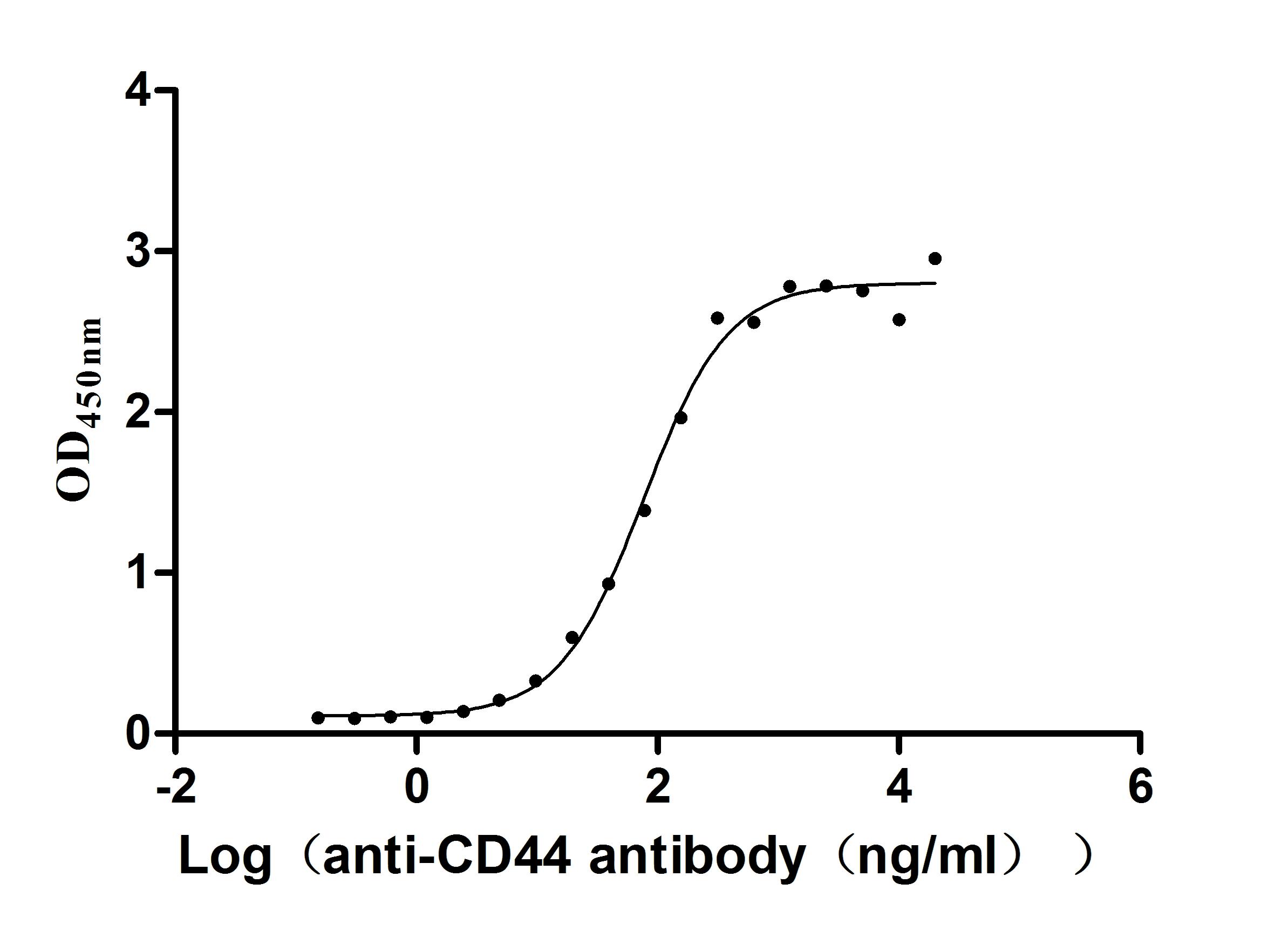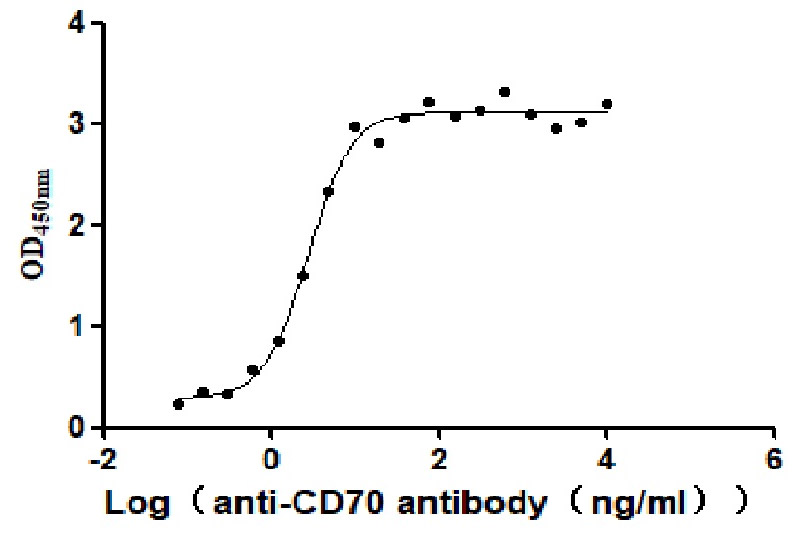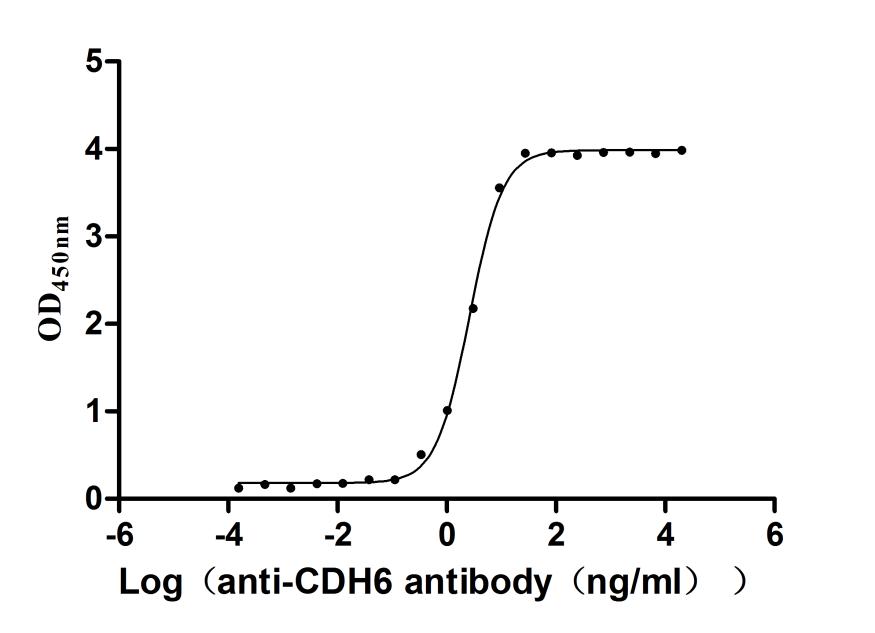Recombinant Mouse Killer cell lectin-like receptor subfamily B member 1C (Klrb1c), partial
-
货号:CSB-YP333296MO
-
规格:
-
来源:Yeast
-
其他:
-
货号:CSB-EP333296MO
-
规格:
-
来源:E.coli
-
其他:
-
货号:CSB-EP333296MO-B
-
规格:
-
来源:E.coli
-
共轭:Avi-tag Biotinylated
E. coli biotin ligase (BirA) is highly specific in covalently attaching biotin to the 15 amino acid AviTag peptide. This recombinant protein was biotinylated in vivo by AviTag-BirA technology, which method is BriA catalyzes amide linkage between the biotin and the specific lysine of the AviTag.
-
其他:
-
货号:CSB-BP333296MO
-
规格:
-
来源:Baculovirus
-
其他:
-
货号:CSB-MP333296MO
-
规格:
-
来源:Mammalian cell
-
其他:
产品详情
-
纯度:>85% (SDS-PAGE)
-
基因名:Klrb1c
-
Uniprot No.:
-
别名:CD161 antigen like family member C; CD161 antigen-like family member C; CD161c; Killer cell lectin-like receptor subfamily B member 1C; Klrb1c; Klrb1f; KLRBC_MOUSE; Ly-55c; Ly55c; Lymphocyte antigen 55c; Lymphocyte antigen 59; Natural killer cell surface protein P1-40; NK1.1; NKR P1.9; NKR P1C; NKR-P1 40; NKR-P1.9; NKR-P1C; NKRP1
-
种属:Mus musculus (Mouse)
-
蛋白长度:Partial
-
蛋白标签:Tag type will be determined during the manufacturing process.
The tag type will be determined during production process. If you have specified tag type, please tell us and we will develop the specified tag preferentially. -
产品提供形式:Lyophilized powder
Note: We will preferentially ship the format that we have in stock, however, if you have any special requirement for the format, please remark your requirement when placing the order, we will prepare according to your demand. -
复溶:We recommend that this vial be briefly centrifuged prior to opening to bring the contents to the bottom. Please reconstitute protein in deionized sterile water to a concentration of 0.1-1.0 mg/mL.We recommend to add 5-50% of glycerol (final concentration) and aliquot for long-term storage at -20℃/-80℃. Our default final concentration of glycerol is 50%. Customers could use it as reference.
-
储存条件:Store at -20°C/-80°C upon receipt, aliquoting is necessary for mutiple use. Avoid repeated freeze-thaw cycles.
-
保质期:The shelf life is related to many factors, storage state, buffer ingredients, storage temperature and the stability of the protein itself.
Generally, the shelf life of liquid form is 6 months at -20°C/-80°C. The shelf life of lyophilized form is 12 months at -20°C/-80°C. -
货期:Delivery time may differ from different purchasing way or location, please kindly consult your local distributors for specific delivery time.Note: All of our proteins are default shipped with normal blue ice packs, if you request to ship with dry ice, please communicate with us in advance and extra fees will be charged.
-
注意事项:Repeated freezing and thawing is not recommended. Store working aliquots at 4°C for up to one week.
-
Datasheet :Please contact us to get it.
靶点详情
-
功能:Plays a stimulatory role on natural killer (NK) cells cytotoxicity. Activation by cross-linking of the receptor induces Ca(2+) mobilization and interferon-gamma production.
-
基因功能参考文献:
- The adoptive transfer of NK1.1(-) CD4(+) NKG2D(+) cells suppressed DSS-induced colitis largely dependent on TGF-beta. Thus, NK1.1(-) CD4(+) NKG2D(+) cells exhibited immune regulatory functions, and this T cell subset could be developed to suppress inflammation in clinics. PMID: 28224733
- MCMV may encode a novel Clr-b-independent immunoevasin that functionally engages the NKR-P1B receptor. PMID: 26044139
- NK1.1+ CD8+ T cells have a role in TGF-beta control and contribute to early microbial pathogen response PMID: 25284210
- Data indicate that C-type lectin-like NK receptor NKR-P1C proteins showed no affinity to the various neoglycoproteins. PMID: 24076118
- 5-HT3 and NK1 immunopositive macrophages and mucosal mast cells in lamina propria release 5-HT and substance P, which in turn activate their corresponding receptors on mucosal cells in autocrine and paracrine manners. PMID: 23695873
- Nkrp1-Clr gene cluster appears to evolve more slowly relative to the related Ly49 cluster, and likely regulates innate immunosurveillance in a tissue-specific manner PMID: 23226525
- NK1.1-positive cells contribute to BCG-induced protective immunity to Mycobacterium tuberculosis through interactions with T cells in a mouse model. PMID: 22711885
- A functional dimeric form of the receptor is suggested, with the loop, evolutionarily conserved within this family, proposed to participate in interactions with ligands. PMID: 21600988
- CD11c-positive cells in the thyroid of CCL21 transgenic mice express the natural killer cell marker NK1.1, indicating their NK origin. PMID: 21666055
- results identify the minimal upstream cis-acting elements, and point to a complex regulatory mechanism involved in the lineage-specific control of NKR-P1C expression in NK lymphocytes PMID: 12813047
- Engagement of NKR-P1C stimulates cytotoxicity of target cells, Ca2+ flux, phosphatidylinositol turnover, kinase activity, and cytokine production. In contrast, NKR-P1B engagement inhibits NK cell cytotoxicity. PMID: 15814704
- Lactobacilli selectively activate CD1d-independent NK1.1+ T cells in the large intestine to produce IFN-gamma and therefore modulate Th1 immune responses PMID: 16107279
- Allelic divergence of Nkrp1b/c gene products explains a longstanding confusion regarding the strain-specific NK1.1 alloantigen reactivity of mouse natural killer cells. PMID: 16751398
- In a natural killer cell subset NK1.1(+) cells depended primarily on interleukin 15 and common cytokine receptor gamma chain signaling for their development. PMID: 17923504
- Thus, we present first evidence that NK1.1 surface expression on liver iNKT cells is reversible during L. monocytogenes infection, and that different mechanisms underlie stimulation by TCR and IL-12. PMID: 18024119
- Bone marrow transplant rejection in congenic mice is regulated by haplotypes of the natural killer (NK) gene complex that encodes multiple NK cell receptors. PMID: 18292550
- Lactobacillus pentosus strain S-PT84 effectively promoted type 1 immunity through IL-12 and IFN-gamma which were produced by DCs and NK1.1(+) cells. PMID: 18620001
显示更多
收起更多
-
亚细胞定位:Membrane; Single-pass type II membrane protein.
-
组织特异性:Expressed in natural killer cells.
-
数据库链接:
KEGG: mmu:17059
STRING: 10090.ENSMUSP00000134504
UniGene: Mm.480764
Most popular with customers
-
Recombinant Human B-lymphocyte antigen CD20 (MS4A1)-VLPs (Active)
Express system: Mammalian cell
Species: Homo sapiens (Human)
-
Recombinant Rat Intestinal-type alkaline phosphatase 1 (Alpi) (Active)
Express system: Mammalian cell
Species: Rattus norvegicus (Rat)
-
Recombinant Human Cannabinoid receptor 1 (CNR1)-VLPs (Active)
Express system: Mammalian cell
Species: Homo sapiens (Human)
-
Recombinant Macaca fascicularis CD44 antigen (CD44), partial (Active)
Express system: Mammalian cell
Species: Macaca fascicularis (Crab-eating macaque) (Cynomolgus monkey)
-
Recombinant Human Desmoglein-3 (DSG3), partial (Active)
Express system: Baculovirus
Species: Homo sapiens (Human)
-
Recombinant Human CD70 antigen (CD70), partial (Active)
Express system: Mammalian cell
Species: Homo sapiens (Human)
-
Recombinant Macaca fascicularis Transmembrane 4 L6 family member 1 (TM4SF1)-VLPs (Active)
Express system: Mammalian cell
Species: Macaca fascicularis (Crab-eating macaque) (Cynomolgus monkey)
-
Recombinant Human Cadherin-6(CDH6),partial (Active)
Express system: Mammalian cell
Species: Homo sapiens (Human)


